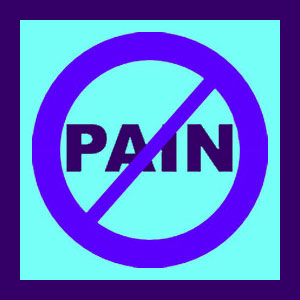
There is an epidemic of psychosomatic pain conditions plaguing society. Worse still, the majority of these conditions are completely misunderstood by modern medical science. Doctors view themselves as structural engineers of the human body and think that the body can be fined tuned like a machine. Of course, the truth is that the body is just part of the complex organism called the human being. The individual is much more than just their physical anatomy. In reality, the human entity is comprised of the body, the mind and the spirit. The essence of being human is not contained in any one of these parts, but instead in the interactions between them.
To think that pain is exclusively a physical process that can only be caused by disease or injury to the anatomy is short-sighted and unenlightened. This discussion helps to propagate the widely held idea that many chronic pain conditions are actually created in the mind, although they are expressed in the body just like any structurally-motivated symptom.
Psychosomatic Pain Problems
Psychologically-induced pain syndromes are created by the subconscious mind as a defense mechanism. This process is designed to protect the individual from repressed and unresolved emotional issues and conflicts. The subconscious fears these emotions and wants to keep them deeply hidden. Ironically, it is the desire of these repressed issues to escape captivity and gain consciousness. The subconscious creates pain as a way to distract the conscious mind from thinking about these hidden emotional problems. It is an example of a psychological camouflage.
Physical pain is incredibly and inarguably the most effective way of capturing conscious thought. When a person is suffering, they really do not have the ability to concentrate on anything else. Therefore, pain is the ideal process for the subconscious to use in its maladapted defense system.
Subconscious and Psychogenic Pain
The subconscious mind is the real you. The idea that you have of yourself is not real. It is merely a creation of your subconscious mind. Sometimes the subconscious mind is called the unconscious, but I will avoid that nomenclature for the sake of confusing the term with being asleep. Speaking of sleep, that is the time when your subconscious is truly in control. That is the real you.
This subconscious part of the mind is vast, unmapped, and somewhat frightening. It contains all your most hidden and secret desires, hopes, fears, experiences and ideas. Most of these items are so well hidden that even you are not aware they are there! The subconscious is truly the iceberg that sank the Titanic. The conscious mind is the small ice visible above the surface, but the majority of the deadly beast is lurking below the surface. It is invisible to the eye, but potentially deadly nevertheless.
Psychosomatic Pain Expressions
We all have mindbody symptoms of some sort. Some of us are more prone to experience pain of greater intensity or variety, depending on our personality traits. Pain can be minor, such as a common stress-induced headache or back ache. It can be moderate, such as a chronic pain syndrome. It can also be life-threatening, such as the many varieties of fibromyalgia symptoms or auto-immune disease.
Show me a person who has never had psychologically-caused pain and I will show you a genetic anomaly. Psychosomatic symptoms are integral to the human condition. They are part of what makes us the (overly) advanced and (overly) evolved species called Homo Sapiens.
Denying the power that the mind has over the body is not only folly; it is also against proven scientific research. These ideas are not alternative to medical science… They are medical science in its purest form.
Coping with Psychosomatic Pain
Does having psychologically-motivated pain make you crazy, defective or different? Of course not! If you were immune to the experience, you would be alone in the world. However, when the psychosomatic symptoms become a problem, it is time to view them as an enemy, rather than a normal part of life.
When you add up the numbers of individuals suffering from common psychological back pain, tendonitis, irritable bowel syndrome, fibromyalgia, digestive tract sensitivity, skin disorders, stomach ulcers, prostatitis, urinary tract problems, auto-immune disorders, tension and migraine headaches, and other psychologically-induced or perpetuated conditions, you will see that the numbers are vast. In fact, it seems that almost everyone has some psychoemotional pain condition that medical science can not cure. With these statistics, it is simply amazing that a few doctors continue to deny the power of these mindbody conditions. This attitude is surely a remnant of a darker age of medical thought.
It is a fact that the epidemic of these psychosomatic pain conditions will get much worse before it gets better. It is truly time for a paradigm shift in the way medicine views the links between the mind, the body and the health of the individual. The only question remains… When will that change come?
Back Pain > Alternative Medicine for Back Pain > Psychosomatic Pain





